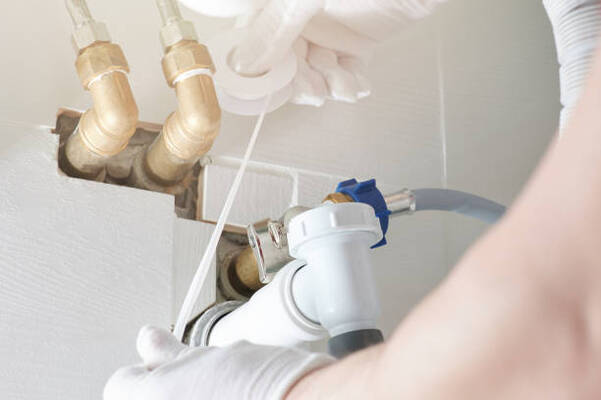- 1-905-452-8193
- Contact Us
- Member Login
- Get Listed Today
- 220,911 members

The plumbing system is a complex network of pipes and fixtures that are essential for providing water to our homes. Unfortunately, it’s not uncommon for plumbing systems to leak due to wear and tear or settling foundations. Your plumber Brisbane North knows that pipe leaks can create costly water damage, increase utility bills, and lead to hazardous mould growth. Therefore, it’s important to be aware of the signs of a potential leak and what causes them to prevent further damage.
When plumbing issues arise, it is important to act fast and get them resolved. Unfortunately, some repairs can take time to fix. In the meantime, homeowners may need a temporary solution to prevent further damage or flooding.
Here are some efficient ways to temporarily patch your pipes:
Use Tape
Various types of tape such as duct tape, gaffer tape or electrical tape can be used as a quick and easy way to cover up exposed pipework and stop water from leaking out. However, this should not be considered a long-term solution, but rather just a short-term measure until proper repair work can be completed.
Apply a Putty Patch
Putty patches are made from rubber or fibreglass and are designed to plug holes in pipes with a waterproof seal. For this reason, they can be used to temporarily patch up a leaky pipe.
Use Compression Fittings
Plumbers often use compression fittings when connecting two pieces of piping. These fittings can also be used as a temporary fix for small leaks or cracks in the pipe. They work by using pressure from tightening nuts to compress the fitting around the pipe, forming a watertight seal.
Wrap it Up
Wrapping tape around the affected area is another quick way to plug up any exposed pipes that have been damaged or leaking. This method should only be used on exposed pipes and not on those located behind walls or floors.
Use a Rubber Hose
A rubber hose is an effective way to plug up pipes and stop them from leaking temporarily. All you have to do is simply cut a piece of the hose that’s big enough to cover the leak, and then place it over the pipe with some tape or tie wraps around it.
Caulk It Up
Applying caulk can help seal any gaps or cracks in a pipe, which can prevent further water damage and keep your home safe until proper repairs are made.
Clamp It Down
Pipe clamps are designed specifically for this purpose, as they clamp tightly down on the pipe to form a watertight seal around it.
Try a Pipe Sleeve
Pipe sleeves are another helpful tool for plugging up holes in pipes that are too large for tape or putty patches. All you have to do is slide the sleeve over the pipe and it will act as a stopper, preventing water from leaking out.
Use an Expansion Plug
Expansion plugs are made of rubber and can be used to temporarily seal off pipes until a proper repair job can be done. All you need to do is insert the plug into the hole in the pipe and it will expand, creating a tight seal around it.
Fill It In
If there’s no other way to stop a leak, then filling in the area with mortar or cement will help plug it up. This should only be done as a last resort, however, as the fix may not be permanent and can cause more damage in the long run.
These efficient methods of temporarily patching your plumbing can help stop water from leaking out until professional repair work is completed. Keep in mind that these are just temporary solutions and should not be considered long-term fixes. If you experience any other issues with your plumbing system, then it is best to contact a professional plumber for further assistance.
By taking preventative measures to spot the warning signs of plumbing leaks, you can save time and money on expensive repairs and preserve the integrity of your home’s plumbing system. With this knowledge and understanding of what causes plumbing to leak, you will have peace of mind knowing that potential issues are taken care of before they become bigger problems.
